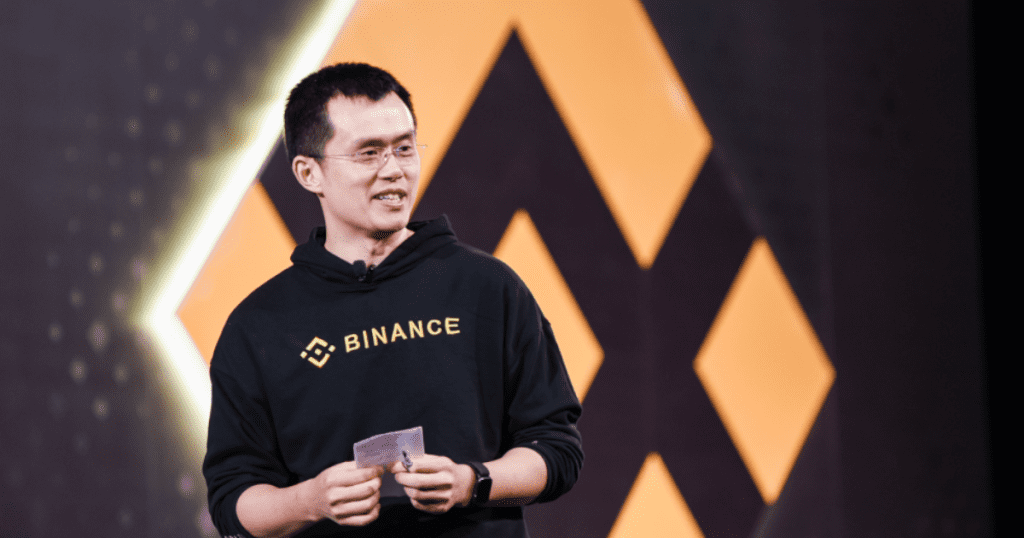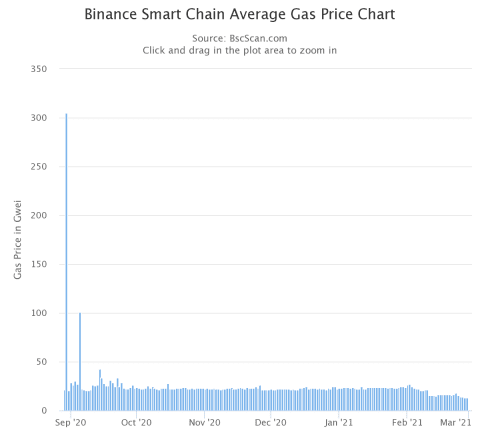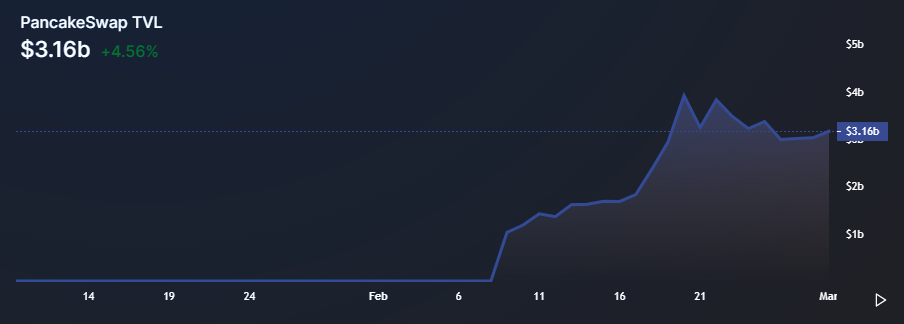
Photo: Binance
The Future of Crypto Exchanges Is Decentralized: Interview with CZ, CEO of Binance
Crypto Briefing reached out to CZ to discuss his views on DeFi and Binance Smart Chain.
DeFi users are looking to alternative networks after Ethereum gas fees have once again hit new highs. This time, the Binance Smart Chain has entered center stage.
Binance Is Riding The DeFi Craze
Users only have to pay a few cents for a simple transaction on the Binance Smart Chain (BSC), compared to more than $30 on Ethereum last month. At the time of press, the average transaction fee for a BSC transaction was roughly 13 gwei.

BSC has only been around for a year, but its rapid growth has helped the chain accrue $9 billion in total value locked (TVL) via native DeFi projects.
Unique addresses on BSC also rose five times in February alone, jumping from about a million to five million during the month, thanks mostly to an ongoing yield farming craze that began on Ethereum last year.
“We want to build cross-chain financial infrastructure to unlock the Internet of Value. This includes supporting more interconnections between dApps and the corresponding transfer of assets across these applications. With the pace at which projects are building on BSC, it’s safe to say that we’re moving in the right direction,” Changpeng “CZ” Zhao, founder and CEO of Binance, told Crypto Briefing in an interaction.
If one looks at the origin of BSC, CZ reminded, it stemmed from a development fund that Binance launched in 2020. The fund aimed at diversifying away from Binance Launchpad, a fundraising model that pioneered Initial Exchange Offering (IEO).
“In 2020, we diversified into helping the developer community with the launch of Binance Smart Chain. The community required more technical assistance and expertise than fundraising, for which we conducted multiple hackathons and accelerator programs globally, including the $100M fund we set up to help DeFi startups grow,” CZ said.
CZ Bullish on Decentralization
A few leading projects have steered BSC’s appeal, one of them being PancakeSwap–the third-largest DEX by trading volume across all blockchains and more than $3 billion in TVL. For reference, Uniswap boasts 3.61 billion.

When asked about which exchange model would prevail in the future, the CEO of the world’s largest crypto exchange said DEXes would eventually outpace centralized competitors in the long term. The Binance chief said:
“From the start, our mission has not been to develop a centralized exchange but rather a community-driven DEX. Mass adoption is the key for DEXes to overtake, but I don’t see it coming through any time soon. If you look at it in a longer-term, 15 years or 20 years, there’s no doubt DEXes will eat up centralized exchanges.”
Despite BSC’s rapid success, critics claim the blockchain is centralized and goes against the broader crypto ethos.
BSC uses a consensus mechanism called Proof of Staked Authority (PoSA), governed by merely 21 validators, making it relatively centralized compared to Ethereum, with thousands of nodes.
While the Binance blockchain may not be decentralized to the extent of Ethereum, according to CZ, users still control the private keys to their funds, making non-custodial trading possible.
BSC’s value proposition lies in offering an Ethereum-like experience for developers and users with minimal gas costs. Only time will tell, however, if the network is a true Ethereum killer.
